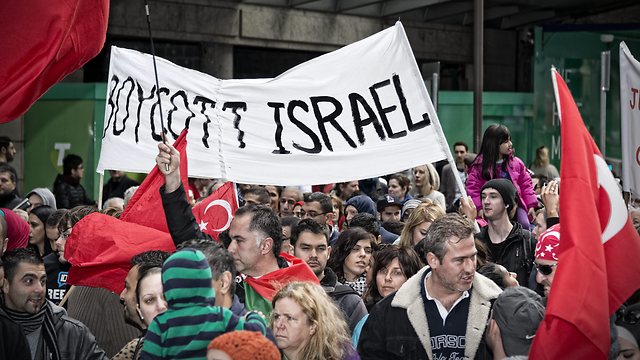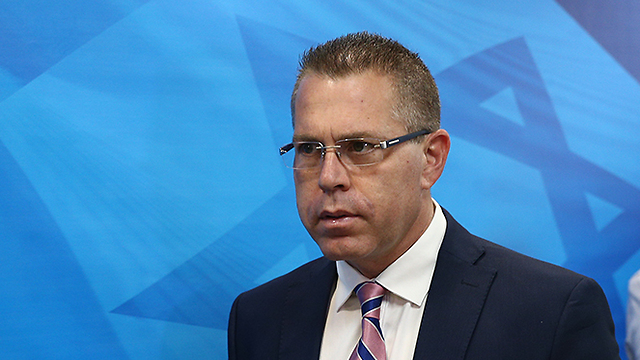At first sight, it looks like a startup company’s office. But it is from this place, on the 29th floor of Ramat Gan’s Champion Tower, that the State of Israel is waging one of its most important and difficult battles: The war on delegitimization and on the boycott movement.
Brigadier-General (res.) Sima Vaknin-Gil, director-general of the Ministry of Strategic Affairs, which is leading the battle these days, sees it as a war for all intents and purposes. “The delegitimization against the State of Israel can be curbed and contained through public diplomacy and soft tools,” she says. “In order to win, however, we must use tricks and craftiness. The bottom line is the rival has moved from its comfort zone into our comfort zone. Today the rival is on the defense and we are on the offensive.”
The ministry—led by Public Security, Strategic Affairs and Information Minister Gilad Erdan—has quietly managed to receive a biennial budget of about NIS 250 million (roughly $70 million) and stand at the forefront of the battle against delegitimization, adopting methods from the fields of intelligence and technology. There is a reason why ministry officials define it as “a war on consciousness terrorism.”
In the past six months, the ministry demonstrated abilities of prevention, torpedoing and thwarting overseas activities like “hate events,” global anti-Israel campaigns, boycott organizations, etc. The ministry has recorded an impressive success in eight cases in this area, but is refraining from making its achievements public so as not to expose its abilities and methods of action.
The Ministry of Strategic Affairs, officials stress, is not working alone, but in cooperation with the Foreign Ministry and Israel’s representatives abroad.
“We have many collaborations with the Foreign Ministry and we definitely complement each other. We’re not replacing the Foreign Ministry. There’s no alternative to feet on the ground, and our embassies abroad are more familiar with the situation on the ground than we are. It’s true we entered their domain and it was clear it would create friction, but we’re doing everything we can to work in an organized manner.”
The Ministry of Strategic Affairs recently received approval to recruit 10 local workers in the embassies to coordinate the activity against delegitimization. Eight workers have already been hired.
“Hama’aracha” (The Battle), the ministry’s special unit in charge of the battle against delegitimization, is led by attorney Tzahi Gavrieli, a retired lieutenant colonel and a former advisor to Prime Ministers Benjamin Netanyahu and Ehud Olmert. The Justice Ministry’s decision to exclude Hama’aracha’s activity from the Freedom of Information Law indicates that the unit’s power is in its confidentiality. The decision has been criticized by the Movement for Quality Government in Israel.
The new offices in Ramat Gan also include a 24/7 operations room monitoring all the delegitimization activities against Israel: Protests, conferences, publications calling for an anti-Israel boycott and international bodies’ boycott initiatives. The operations room will transfer the information to the relevant people to provide a proper response to these activities, whether through a counter-protest or through moves to thwart the initiative behind the scenes.
The ministry has mapped 150 bodies engaged in delegitimization and boycotts and has formulated a combat doctrine which is implemented on two levels: Revealing their true face and blocking their money trail.
“Since the ministry began leading the war on the boycott movement,” says Minister Erdan, “boycott organizations have been under constant pressure. Legislation is being advanced in Israel and in the world, the organizations are under financial pressure which includes closing bank accounts and thwarting donations, and the hypocrisy of bodies disguised as ‘human rights organizations’ is being exposed. My policy of moving from the defense to the offense has proved itself, but there’s a lot more to be done.”



